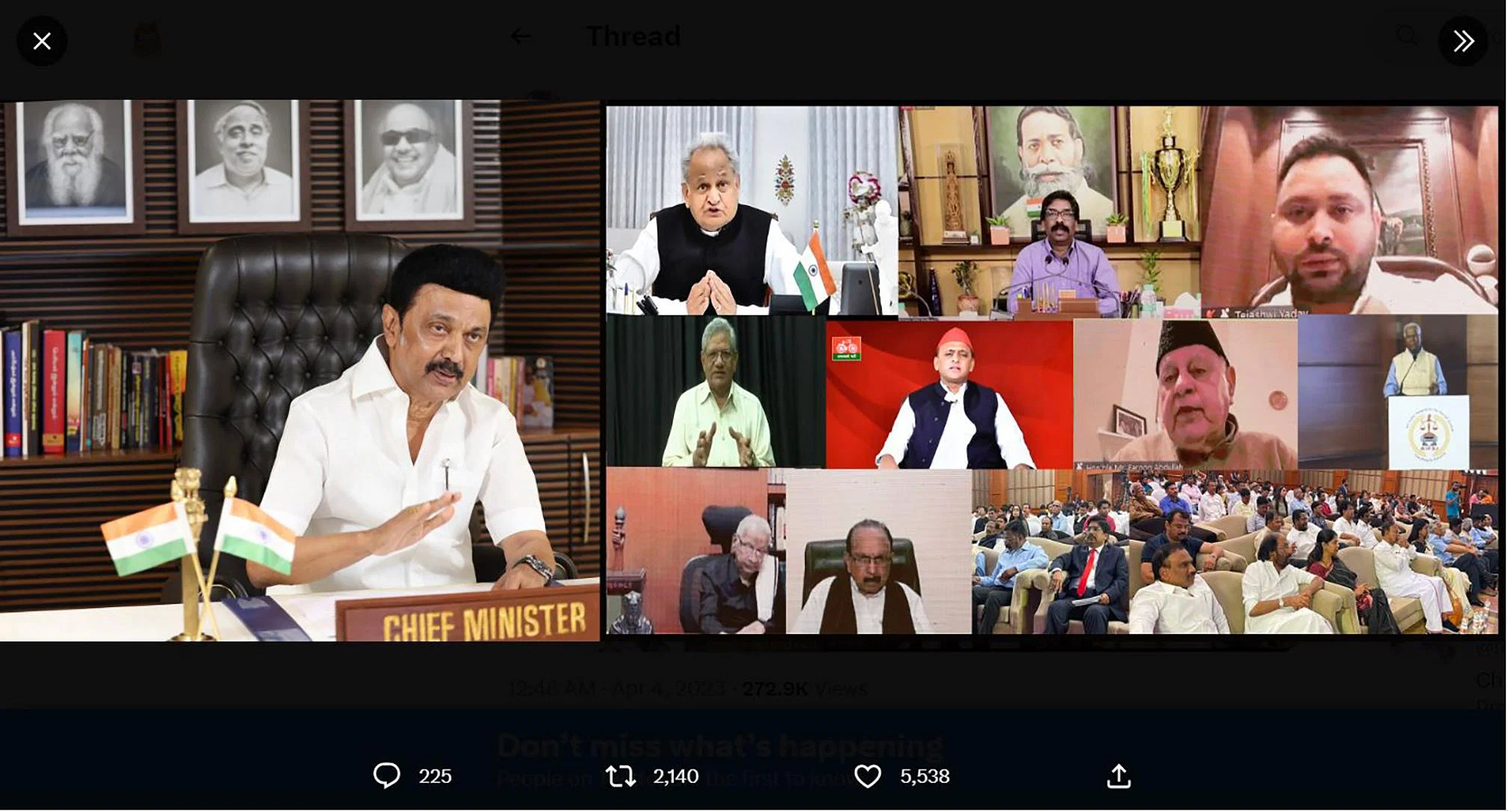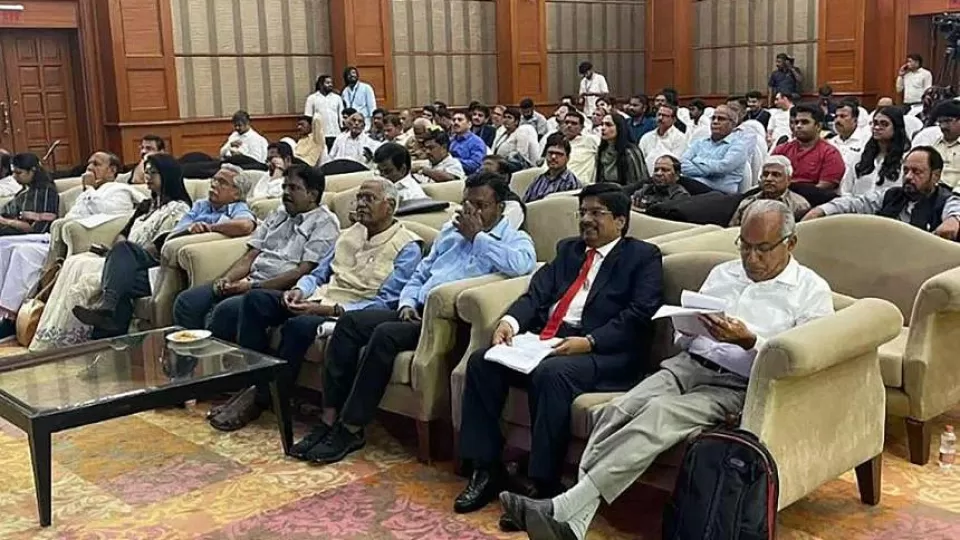April 5, 2023
NEW DELHI – India’s opposition parties are seeking ways to mount a strong challenge to the ruling party in the 2024 national polls, with Tamil Nadu Chief Minister M.K. Stalin hosting a major meeting in New Delhi on Monday to find common ground with around 20 opposition leaders who attended online or in person.
The southern leader of Tamil Nadu’s ruling Dravida Munnetra Kazhagam (DMK) party discussed issues of social justice with the other politicians, many of them from strong regional parties across the country.
The parties were invited by DMK think-tank All India Forum for Social Justice.
Some of those who attended said that the meeting was a crucial step towards crafting clear messages to combat the Bharatiya Janata Party (BJP), which has helmed the Indian central government since 2014 under Prime Minister Narendra Modi.
Among those present at the meeting were Rajasthan Chief Minister and Congress leader Ashok Gehlot, Jharkhand Chief Minister and Jharkhand Mukti Morcha leader Hemant Soren, former Kashmir leader Farooq Abdullah, Uttar Pradesh opposition leader Akhilesh Yadav, Bihar Deputy Chief Minister Tejashwi Yadav, and Communist Party leaders Sitaram Yechury and D. Raja.
Members from New Delhi’s ruling Aam Aadmi Party, Kerala’s Indian Union Muslim League and Maharashtra’s Nationalist Congress Party also attended.
Mr Modi’s BJP has gone from strength to strength in the past decade with the Prime Minister’s unflagging popularity, well-publicised big-ticket welfare programmes, the party’s deep pockets, vast cadre of Hindu nationalist youth and social media savvy.
But the opposition parties see public displeasure over the rising cost of fuel and food, unemployment and corruption charges as opportunities to stop the BJP’s momentum.
Despite having a common adversary in the BJP, opposition leaders have admitted in the past few months that a pan-India coalition might not be feasible, as many parties seeking an alliance at the national level are bitter rivals at the state level.
The parties are therefore trying to unite on certain common issues and take on the BJP.
Several senior politicians said under condition of anonymity that voters appear unmoved on certain issues such as the alleged financial fraud by the Adani Group, which is seen as being close to Mr Modi; the arrests of opposition politicians, journalists and activists; and the shrinking space for civil debate.
Campaigning on livelihood, employment and land access issues, however, may attract higher voter interest.
Mr Stalin at the meeting raised the need for a caste census, an issue that could both unite the opposition and garner deep voter interest.
Empirical data on the numbers and socioeconomic status of hundreds of caste groups in India would form the basis for reserving jobs and college admissions proportionate to their population, a press statement after the opposition meeting said.
The caste enumeration was to have been undertaken with the national census in 2021, but both were delayed by Covid-19.
The BJP has since decided to cancel the caste census, saying it was unfeasible, “administratively difficult and cumbersome”.
The BJP has been pushing for the removal of India’s system of creating job and education quotas for historically backward and socially marginalised communities.
The ruling party wants reservations based on economic considerations.
In his online address at the opposition meet, Mr Stalin said that reservations on economic grounds would benefit the poor from privileged castes while discriminating against backward and formerly untouchable communities.

Tamil Nadu Chief Minister M.K. Stalin (left) hosted a hybrid meeting of opposition party leaders to seek a common ground to challenge Indian PM Narendra Modi. PHOTO: M.K. STALIN/TWITTER
Meanwhile, the opposition parties underscored the need for meaningful sharing of powers between the central and state governments, religious harmony, social justice and equality – “all of which are under threat today”, they claimed.
This was the second opposition meeting held by Mr Stalin since his 70th birthday bash in January this year.
As a leader from one of the few states where the BJP has not yet made inroads, he has emerged as a key interlocutor pushing for opposition unity ahead of next year’s national election.
Efforts to unite a splintered opposition have sped up following opposition leader and Congress member Rahul Gandhi’s disqualification from Parliament after he was found guilty of defamation.
Gandhi has appealed against the verdict in a higher court.
Fourteen parties jointly filed a plea in the Supreme Court on March 24 seeking pre-arrest and post-arrest guidelines for investigative agencies due to a rise in the arbitrary arrest of opposition leaders under BJP rule.
The parties included Gandhi’s Congress, the Aam Aadmi Party, which leads the Delhi government, the Rashtriya Janta Dal party from the state of Bihar, the All India Trinamool Congress, which leads the West Bengal government, and Mr Stalin’s DMK.


